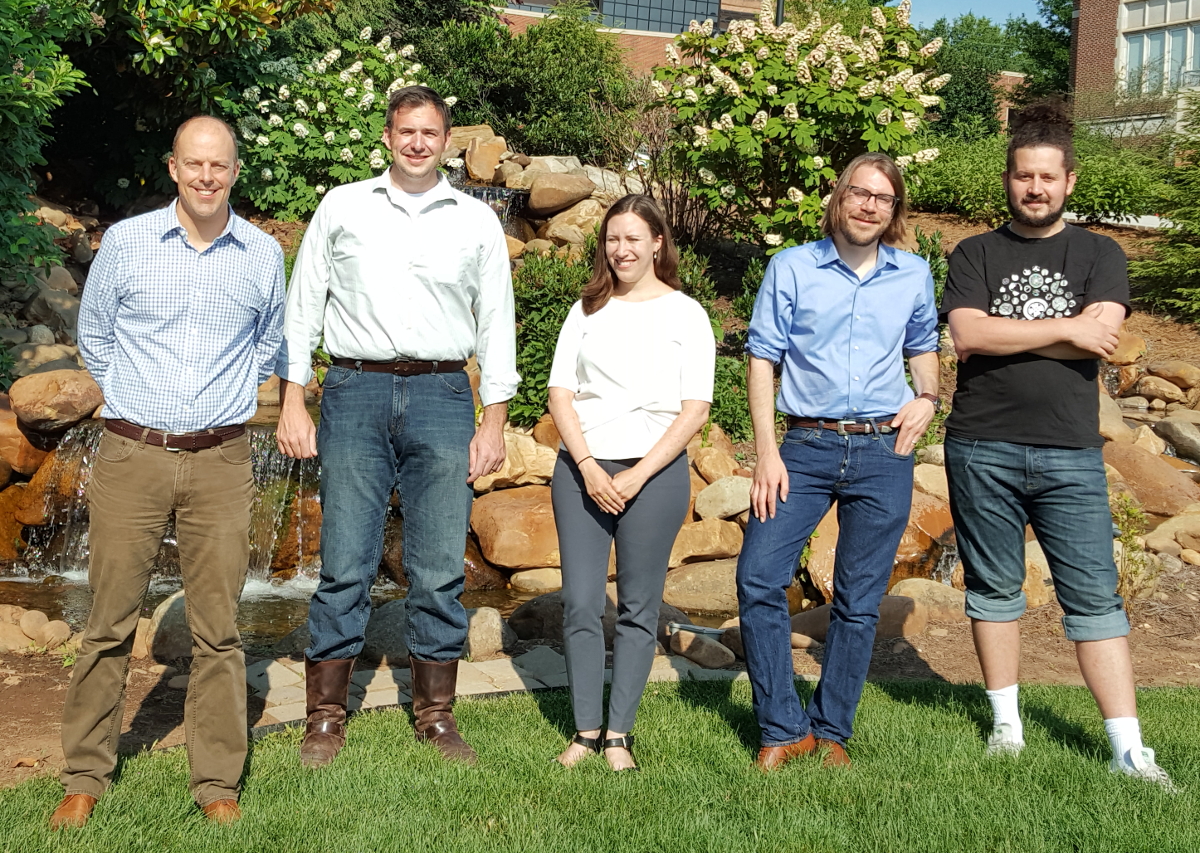| Description | Participants | Agenda | Summary Report |
|---|
DySoC Critical Workshop
Modeling Complex Systems in Archaeology
 |
| Workshop participants (L to R): Alex Bentley, Stephen Collins-Elliot, Katherine Crawford, Jack Hanson, Simon Carrignon |
Topic: DySoC Critical Workshop on Modeling Complex Systems in Archaeology
Meeting dates: June 9–10, 2018
Saturday: 9 a.m.–4 p.m.; Sunday: 9 a.m.–2 p.m.
Location: NIMBioS at the University of Tennessee, Knoxville
Darwin Conference Room (103), Claxton Building, 1122 Volunteer Blvd.
Organizer:
Stephen Collins-Elliott, Classics, Univ. of Tennessee, Knoxville
Objectives: The field of archaeology has long dealt with complex datasets, whether in the collection and analysis of archaeological finds, inter-site comparisons, regional analysis, evolutionary change, or in the framing of research questions which depend on multiple variables, factors, or other sparse and noisy datasets. The popularization of formal methods in the field has resulted in a variety of methods toward addressing these questions, largely borrowed from other fields, which should be subjected to a critical evaluation and discussion. To give just one example, the comparison of archaeological assemblages has been undertaken using a host of mathematical approaches: clustering techniques, principal components analysis, correspondence analysis, similarity coefficients, evolutionary models, and network analysis, and thus raises questions about the relationships between these different methods and their application to the same problem. The problem of inference, too, lurks in the background, and finding ways to evaluate a measure of confidence, certainty, or credibility in the results of modeling complex systems is in need of discussion. These issues can become ramified when dealing with methods which are predicated on higher numbers of variables. The aim of this workshop was therefore to bring awareness to the variety of techniques, engage in critical comparison and evaluation of the ways in which these tools are used, and examine how we should treat model selection, evaluation, and statistical inference in complex problems in archaeology.
On Day 1 of the workshop, participants presented either a specific problem or case study in which they are engaged, or discussed one or more of the above issues, with an aim to engage in an open-ended discussion of their model. Talks were scheduled for thirty minutes, with substantial time given to friendly and constructive discussion. Day 2 focused on practical implementation of methods of complex analysis, with roundtables and discussions about technical details, coding methods, library, software and mathematical tools used by participants during their research.
For inquiries and further information, please contact Stephen Collins-Elliott (sce@utk.edu).
 Summary Report (pdf)
Summary Report (pdf)
This workshop was supported by NIMBioS, the Office of Research & Engagement, the College of Arts & Sciences, the Department of Classics, and the Department of Anthropology at the University of Tennessee, Knoxville.
NIMBioS
1122 Volunteer Blvd., Suite 106
University of Tennessee
Knoxville,
TN 37996-3410
PH: (865) 974-9334
FAX: (865) 974-9461
Contact NIMBioS



